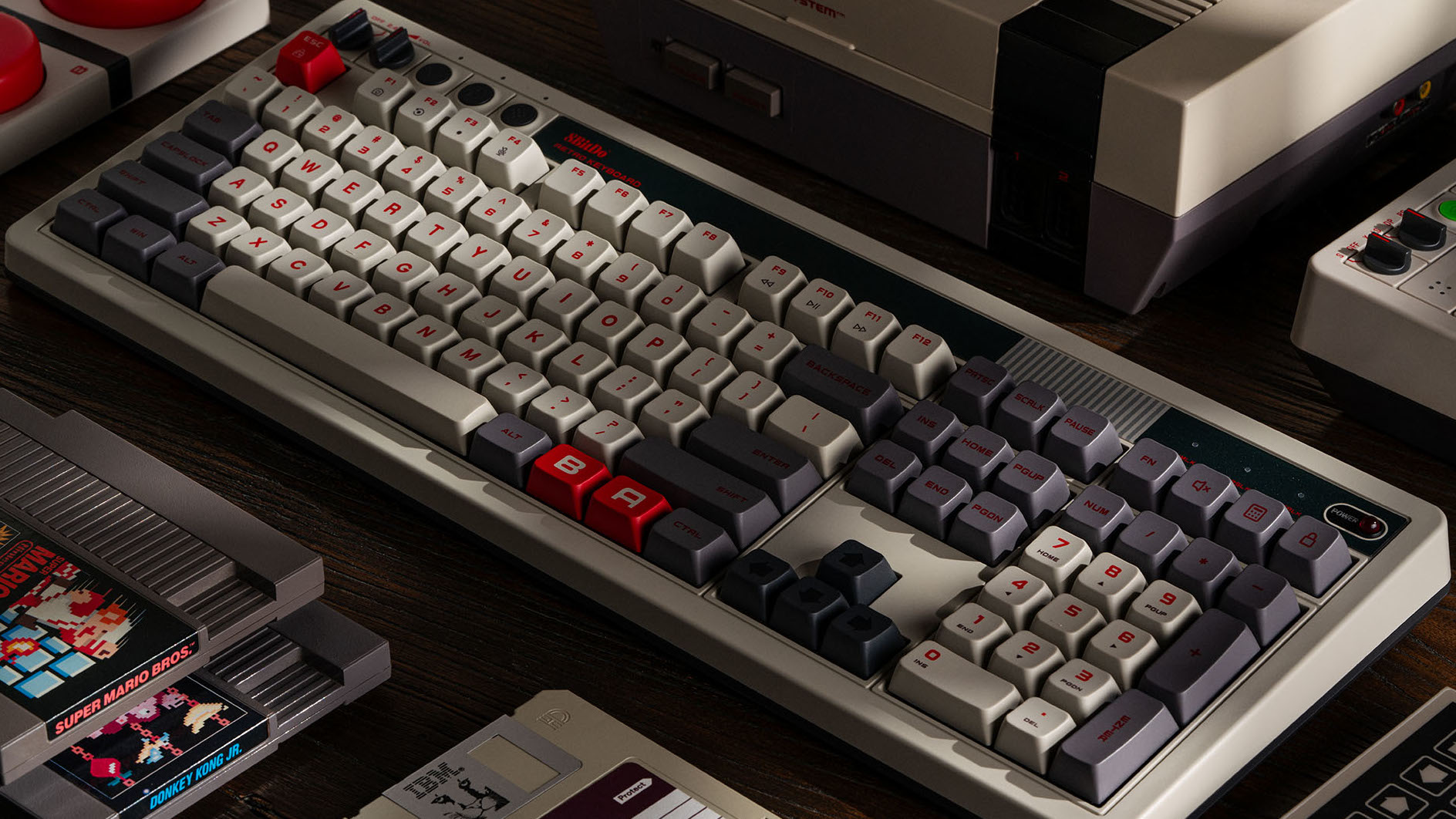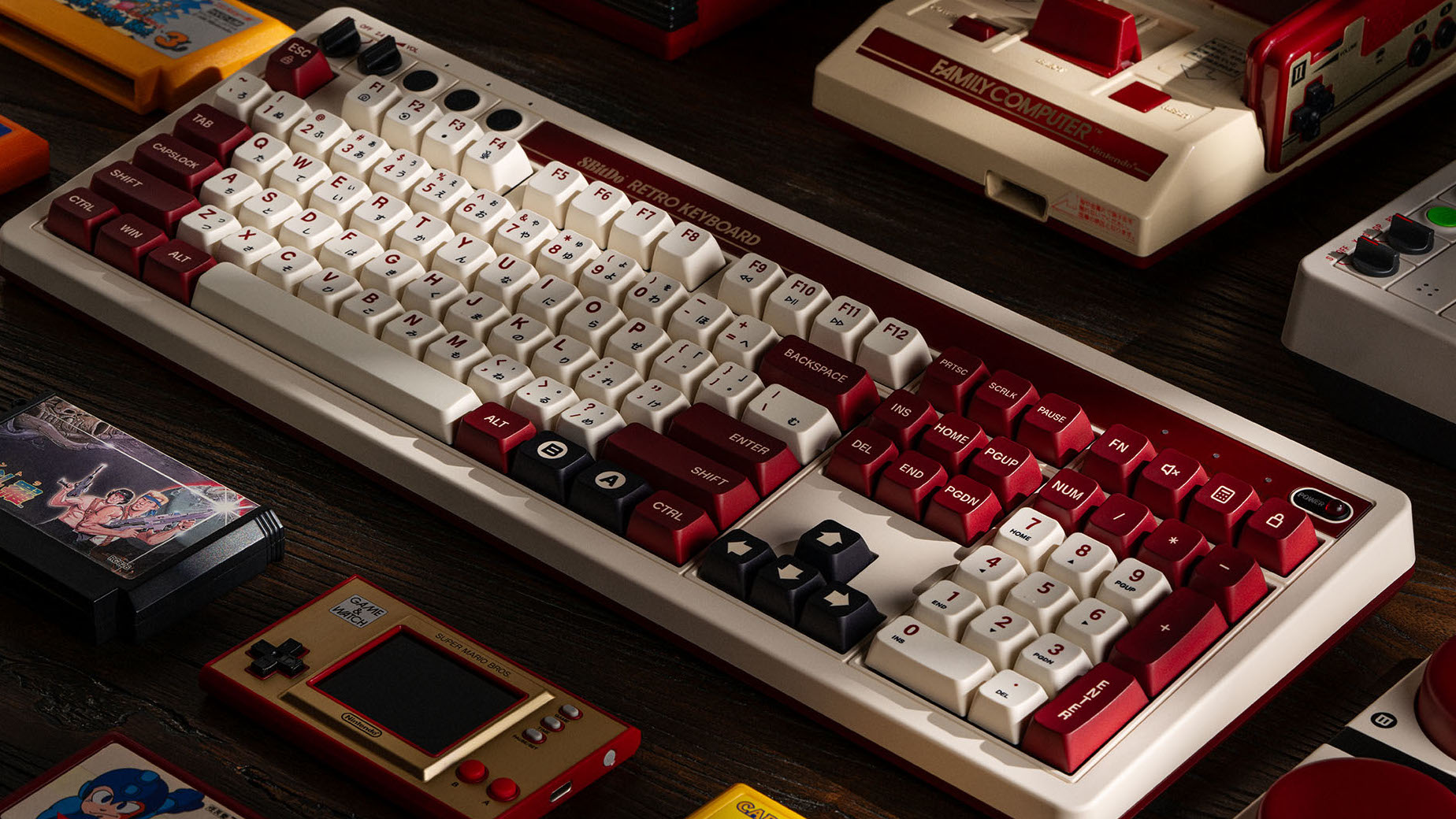
Noted peripherals manufacturer 8BitDo has opened up pre-orders for its Retro 108 Mechanical Keyboard on Amazon. This new keyboard builds on its prior NES and Famicom-themed TKL mechanical keyboard designs by integrating a numpad instead of selling them separately. Both the "N Edition" and "Fami Edition" models cost $119.99, utilize N-key rollover, boast Kailh Box White V2 mechanical switches, and come with a pair of 8BitDo's giant programmable buttons. Compared to the prior trimmed-down "8BitDo Retro Mechanical Keyboard", which is nearly identical in every way besides numpad inclusion and a $99.99 price point, the Retro 108 Mechanical Keyboard only costs $20 more.


Like prior 8BitDo keyboards and keypads, the 8Bitdo Retro 108 is built on an aluminum plate with PBT keycaps. Like the 8BitDo Retro Mechanical Keyboard, Retro 108 also supports swappable PCBs to allow for a full replacement of all the underlying key switches, not just keycaps up above. So if you ultimately decide that the key switch feel or sound aren't to your liking, you can replace the switches using your ideal PCB replacement and then place the original keycaps back on like nothing happened.
Other nifty features of the 8BitDo Retro 108 carried over from the Retro include a tri-mode toggle between Bluetooth, 2.4 GHz Wi-Fi, or USB connectivity in the top-left corner. There is also a volume control dial here. Over on the top-right above the new numpad, there are dedicated shortcuts and function key shortcuts, including a Screen Lock key.
If you're looking for worthwhile gaming keyboards in general and don't necessarily need a swappable PCB or 8BitDo's retro aesthetics, you may be better-served by one of our existing Best Gaming Keyboards picks.
At a price of $119.99 for a mechanical keyboard without any lighting features, some users may be deterred. But for those who enjoy the retro aesthetic and are attracted by the premium build quality, wireless features, or even swappable keyswitch friendly PCB on offer, the 8BitDo Retro 108 Mechanical Keyboard could end up being a fairly good option. Bonus points if your PC setup is already themed around retro hardware in other ways, of course.







